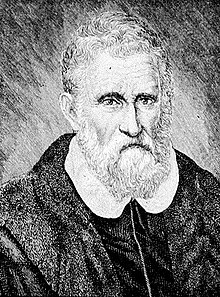For school, my fourth-grader is preparing to be Marco Polo. Or to be more exact, an imaginary female accompanying the fourteenth-century merchant traveler from Venice. I don’t know if Marco Polo had female companions on the Silk Road, but since my nine-year-old is a girl, this is the best way she can pretend to be a part of that time and place.

Venetian merchant traveler, Marco Polo. Source: Wikipedia
This isn’t her idea, by the way. It’s her teacher’s. It’s part of their “Explorer” unit, where they get to research a famous explorer from the past, and present their findings to the class, while dressed in period costume. The challenge isn’t finding enough information from books or online. The challenge isn’t writing it all down. The challenge, and this is where the dear parent being me is involved, is finding the dang period costume.
Where exactly am I supposed to find a Venetian, medieval gown for a nine-year-old girl?

Source: Morgue Files
My daughter and I have been discussing ways to render this outfit, using items from our 21th century, Indian-American household. These include sari material, scarves, throws, Indian bedspreads, and a belt I used when I was nine-years-old myself. You could call it improvising. But would you call it research?
Research is an interesting concept, especially in the life of an author. These days, you have the most amount of information you’ve ever had right at your fingertips. A simple Google search can yield paintings of women in the time of Marco Polo, online catalogs where you can purchase period costumes for adults, children, or pets, and Wikipedia pages describing the items Polo discovered on his journey to the Far East. You don’t have to go far to go back far in time.
When I was first writing my children’s novel, VANISHED, I did similar research online, learning as much as I could from Google, about an ancient, South-Indian instrument known as the veena. This was the instrument that would belong to my book’s main character, the one that would go missing, and that she would go to great lengths to recover. At the time, the only person I knew who owned this instrument lived in another state. There were no nearby teachers or veena players.So I did what any other able-bodied author did – I imagined everything. I used my years of being a violinist to imagine how the strings felt when you played on a veena instead, the calluses that formed on your fingers from practicing, the fears of sounding “twangy” in front of others, and what a seemingly unsympathetic teacher might sound like when she’s badgering you to practice. During the summer, I interviewed a real veena teacher in person, and took photographs. And that’s how I wrote my book.
Today I actually have a veena of my own. With great care and a certain amount of luck, I was able to bring one back from a trip to India last year. Not only that, I actually found a teacher near me, one I didn’t meet until very recently. And I have to say, imagination aside, there is nothing like playing on the real thing. Finally I know firsthand what being a veena player is all about. Looking back at the book I published, I strangely got the details right – the strings really do feel the way I’d written about them! Still, nothing beats the feel and sound of a real instrument – for me the author, and for others who have read my book and get to see and hear the instrument for themselves.
Creative research is definitely a way to bring something otherwise inaccessible to life. Perhaps the materials my daughter will use for her Explorer project will be derived from a silk sari given by her Indian grandmother, or from a Rajasthani bedspread brought back from a trip to India. And maybe the cloak will come from Walmart. She, like her classmates, will have to imagine much.
But the real physical and tactile experience of assembling the various materials together, of wearing them and walking around in them, might evoke a sense of what it was like to be a lady in Marco Polo’s time, hundreds of years ago.
We cannot underestimate the value of a real experience, even a simplified or modified one. Sometimes these real moments have the power to take us farther than a Google search, and we become the musicians and explorers we first could only imagine being inside our heads.
In the meanwhile, if someone has a spare Venetian, medieval gown that fits a nine-year old, please let this parent (and author) know.
—————————————
Sheela Chari is the author of VANISHED, which was recently featured as an Al’s Book Club Pick on the Today Show. She lives in New York.





